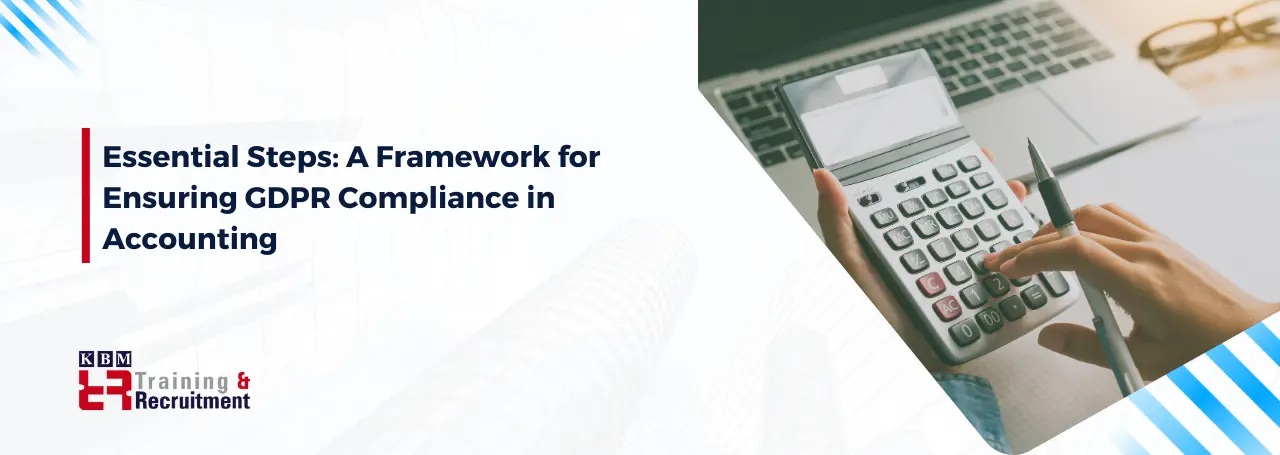In an increasingly digital world, data protection is paramount. With the General Data Protection Regulation (GDPR) in full effect, ensuring compliance is a legal requirement and a crucial aspect of maintaining trust with clients.
This blog provides an actionable framework for accountants to ensure GDPR compliance when handling sensitive financial data.
Understanding the GDPR
The GDPR is a regulation that requires businesses to secure the personal data and privacy of individuals, specifically within the European Union (EU). However, its scope extends to any business worldwide that handles EU citizens' data. This means accountants, even those outside the EU, must comply with GDPR when dealing with clients from this region.
The Importance of GDPR Compliance for Accountants
Why is GDPR compliance crucial for accountants? Here are some of the primary reasons:
- Legal Obligation: First and foremost, GDPR compliance is a legal requirement—failure to comply results in severe penalties, including substantial fines. By adhering to GDPR, accountants safeguard themselves from legal consequences.
- Data Security: GDPR emphasises the importance of data security. When accountants comply with these regulations, they ensure that the sensitive financial data of their clients is kept secure, reducing the risk of data breaches and unauthorised access.
- Client Trust: GDPR compliance demonstrates a commitment to protecting client data and privacy. This can lead to enhanced trust and confidence in the accountant's services, which can help retain existing clients and attract new ones.
- Reputation Management: Maintaining a reputation for being GDPR compliant can differentiate accountants from their competitors. It showcases a dedication to professionalism and ethical standards.
A Framework for GDPR Compliance in Accounting
Compliance with GDPR can seem daunting, but with the proper framework, accountants can systematically implement the necessary steps to ensure they adhere to the regulations.
- Education and Training: The first step is educating yourself and your team about GDPR. Understanding the regulations is crucial before you can implement compliance measures. Consider investing in GDPR training for your staff.
- Data Audit: Conduct a thorough audit of the data you collect, process, and store. Document where the data comes from, why you need it, how you use it, and where it goes. This will help you identify any areas requiring changes to comply with GDPR.
- Consent Mechanism: Review and update your client consent mechanisms. Clients should explicitly agree to the collection and use of their data, and they should have the option to withdraw consent at any time.
- Data Minimisation: Only collect data that is essential for your accounting services. Avoid gathering excessive or unnecessary information. This is a fundamental principle of GDPR.
- Data Security Measures: Implement robust data security measures, including encryption, access controls, and regular security audits. Ensure that data is only accessible to authorised personnel.
- Data Breach Response Plan: Create a data breach response plan about reacting to a security incident. Under GDPR, you are required to report breaches within 72 hours.
- Data Protection Impact Assessment (DPIA): Conduct DPIAs for processing activities that might result in high risks to individuals' freedoms and rights. This helps you assess and mitigate potential privacy risks.
Conclusion
Achieving GDPR compliance in your accounting practice is not only a legal obligation but also a pathway to creating a more secure and trustworthy service. By following the framework outlined above, accountants can systematically ensure compliance and build a reputation for safeguarding their clients' sensitive financial data.
Embracing GDPR is not just about meeting legal standards; it's about establishing trust, enhancing your professional reputation, and providing a secure environment for your clients' financial information.






















